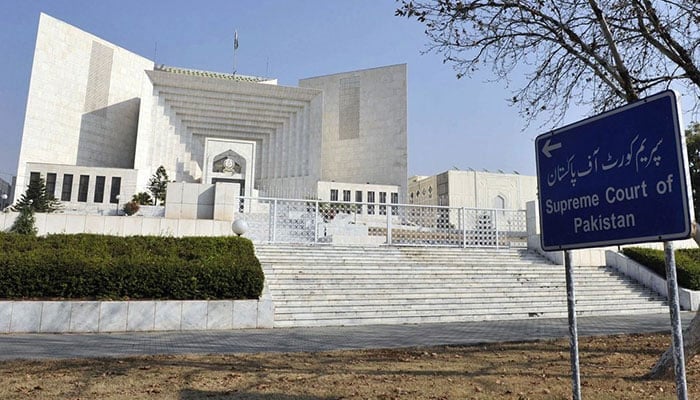SIC’s Appeal on Reserved Seats will be taken up by the Supreme Court today (Monday). The Sunni Ittehad Council (SIC), an ally of Pakistan Tehreek-e-Insaf (PTI), is challenging the Peshawar High Court’s (PHC) verdict. The verdict denied them reserved seats for women and minorities.
A full-court bench, led by Chief Justice of Pakistan (CJP) Qazi Faez Isa, will review the SIC’s Appeal on Reserved Seats. The 13-member bench includes all available judges except Justice Musarrat Hilali, who is unwell.
On May 6, a three-member Supreme Court bench headed by Justice Mansoor Ali Shah, along with Justices Muhammad Ali Mazhar and Athar Minallah, suspended the PHC decision. The case was referred to a larger bench for constitutional interpretation.
The Supreme Court’s written order highlighted the importance of parliamentary democracy. It stated that reserved seats should reflect the electorate’s voice. Fairness and transparency in the electoral process are crucial. The integrity of elections must prioritize the will of the people.
The issue escalated to the Supreme Court after the PHC rejected SIC’s plea. In April, SIC chief Sahibzada Hamid Raza and the Khyber Pakhtunkhwa (KP) Assembly speaker appealed to the Supreme Court. They requested 67 women and 11 minority seats, seeking to overturn the PHC verdict.
After the February 8 general elections, the Election Commission of Pakistan decided against allocating reserved seats to the SIC. The SIC had not submitted its list of candidates for those seats. The PHC upheld this decision.
When the decision was challenged in the Supreme Court, the PHC order was suspended. Following the Supreme Court’s suspension, the Election Commission halted the victory notifications of 77 lawmakers elected on these reserved seats.
The SIC, led by Hamid Raza, gained attention after PTI-backed independents joined them. These candidates lost the PTI electoral symbol “bat.”
In March, the Election Commission ruled against PTI’s claim to reserved seats. It declared SIC ineligible due to legal defects and the failure to submit the required party list. Consequently, the commission distributed the seats to other parties.
The Supreme Court’s decision on SIC’s appeal will have significant implications. It will affect the allocation of reserved seats and uphold the principles of electoral fairness and democracy.


